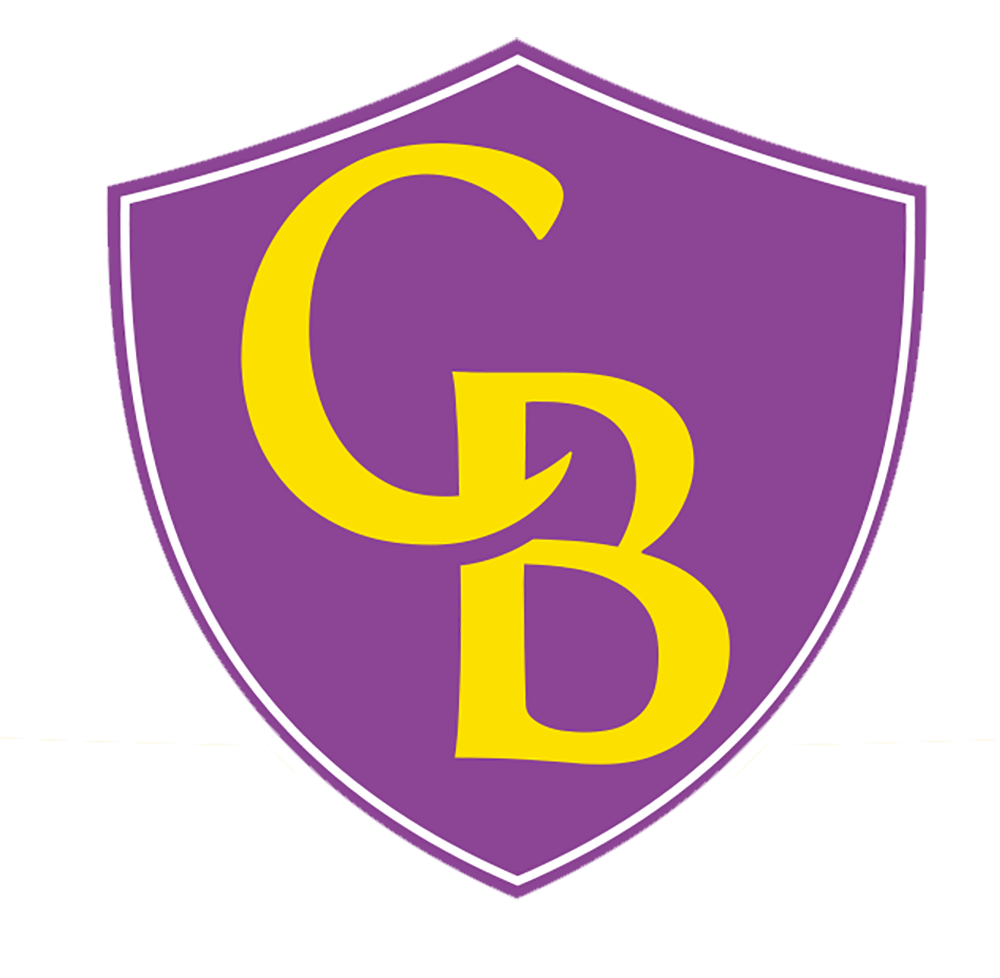On the Montessori side we combine the free flow aspect and guidance of the EYFS and the Montessori method to carry on encouraging individual learning and exploration as well as achieve a well-rounded and quality curriculum.
We have two 2.5 hour work cycles: in the morning and afternoon. Children are free to choose any activities from the shelves. We carefully select activities to reflect the cohort’s ages and stages of development and individual interests too.
The children are free to move between the indoor and outdoor work environments as they choose. The outdoor learning environment is set up to cover all seven areas of the EYFS curriculum, so you can be assured they are always in quality learning surroundings. In cases of extreme weather, we set up in The Barn, ensuring children always have access to space to exercise and explore gross motor movement.
Dr. Maria Montessori (1870 – 1952) was the first Italian woman to qualify as a Doctor of Medicine. During her studies in Philosophy, Psychology and Sociology, she was able to study the child from birth through all the stages of growth. Dr. Montessori’s educational approach aims to aid the development of the whole child to the full. After years of working and carefully observing the children, she believed that the children have an “inner self” and teach themselves at their own pace and through their own experiences. The Montessori Method’s underlying philosophy is based on the belief that a child will benefit from being introduced at an early age to an environment that encourages them to appreciate their own abilities and that in turn gives them the confidence to progress. Much of the original Montessori Philosophy and method is now evident in the Early Years Foundation Stage (EYFS) curriculum and it is widely recognised that the Montessori curriculum properly implemented, is entirely consistent with the EYFS framework.
We are very proud of our Montessori set up at Cannon Barn and aim to host Montessori Orientation evenings for our parents twice a year to introduce them to the method too. Below are the areas of learning in the Montessori Method, and what we here at Cannon Barn, have set up daily for our children.
These exercises provide an opportunity for children to develop confidence, independence and concentration as well as increasing fine and gross motor skills. Activities such as pouring, washing, polishing, sweeping etc. help children master the necessary skills for daily living. Apart from the obvious enjoyment and skills that children gain from these activities, they help towards the building of their self-esteem and independence.
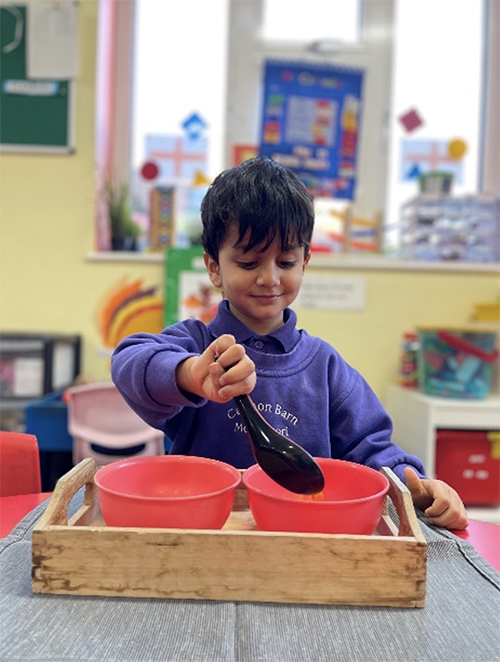
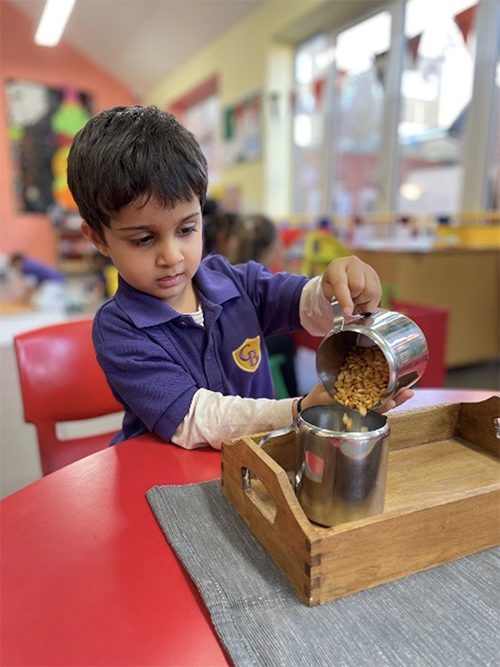
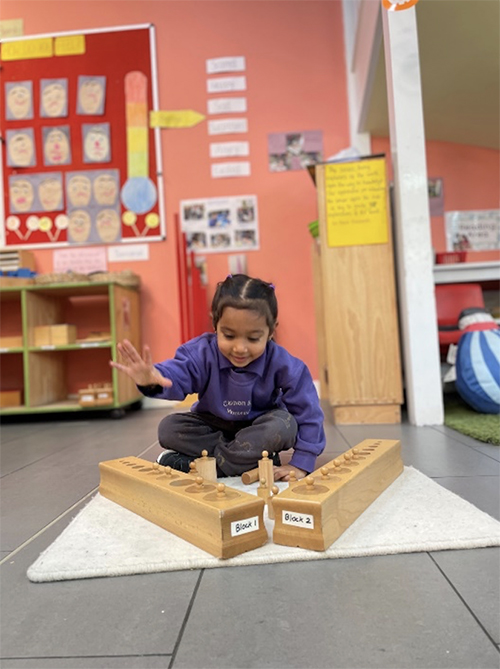
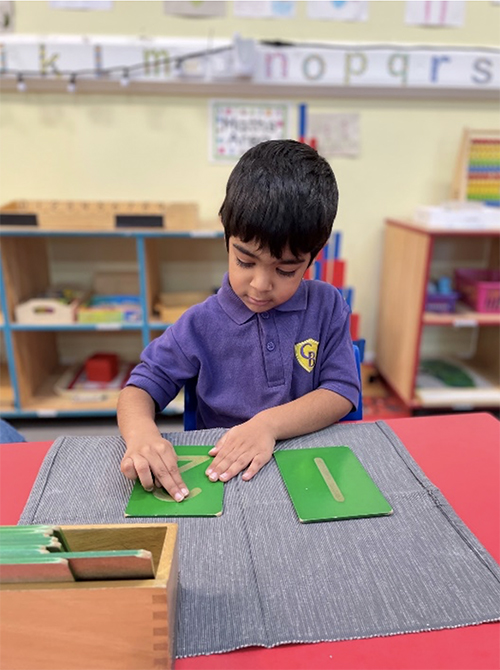
The direct aim of all sensorial activities is to help children become conscious of the different physical properties in the environment with the help of his/her senses. Each piece of material is used to stimulate and refine one of the senses by separating one concept at a time. Sensorial materials are used for discriminating size, shape, colour, sound, smell, taste, etc. The materials help children to observe, to make comparisons between objects and to reason and decide. The sensorial materials are the key to the door which open future work in areas of mathematics, science, language, geography.
Using the most basic tools like the sandpaper letters and classified cards, children develop a deep understanding of the world around them and group it into categories. An excellent supply of Montessori reading cards and books, tapes and songs provide a strong phonetic approach to reading and writing.
Children are encouraged to bring in items of personal significance to talk about during our weekly ‘Show and Tell’ sessions, to encourage their language skills and confidence speaking in front of their peer group.
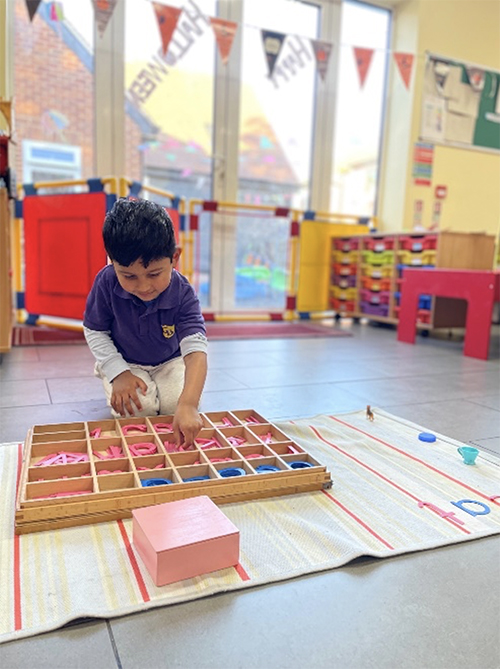
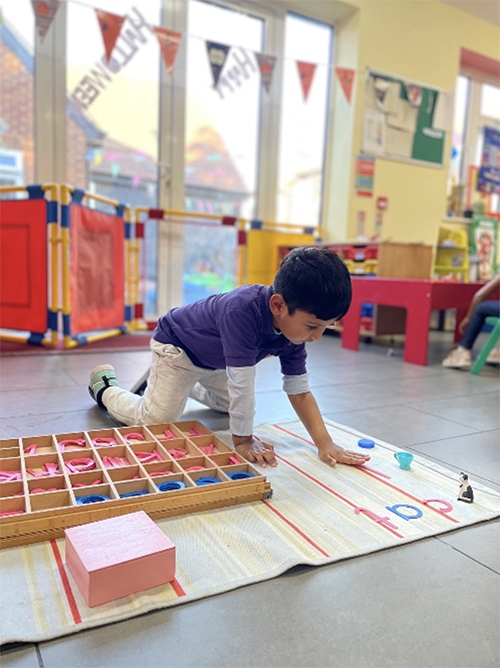
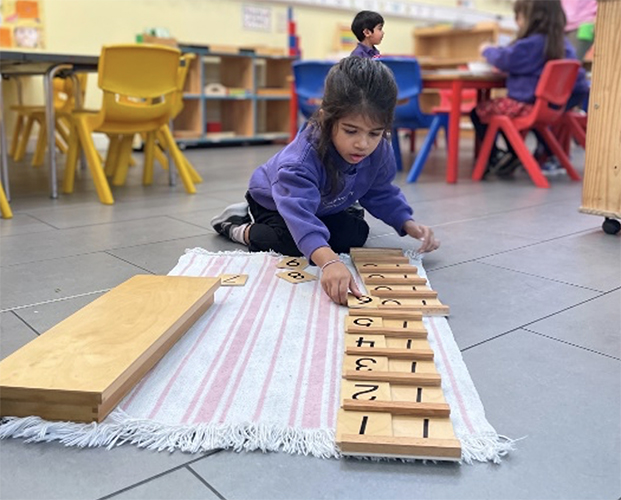
The Montessori mathematics materials provide a structured approach for children to become familiar with the concrete object before the abstract idea of numbers. Children gain a physical impression of size and quantity before they begin to manipulate numbers.
This is a beautiful and rich area in our Montessori environment, from maps and globes to land and water forms or classified cards of animal groups. They all show children the world as it is in its most non-abstract form. Children acquire a broad knowledge of the world and good insight to Geography, Biology, Science and History.
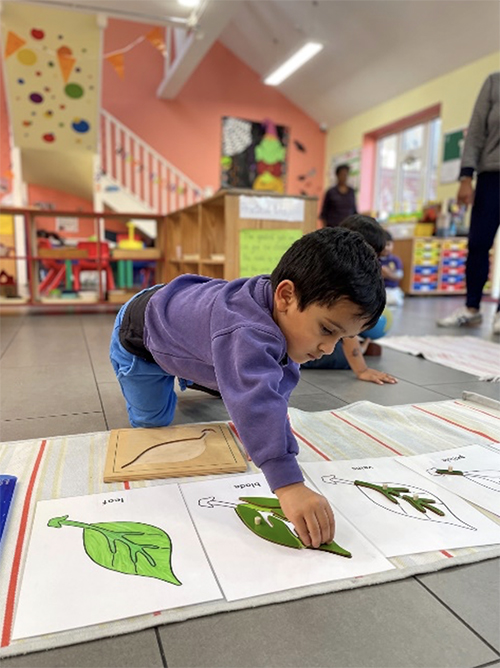
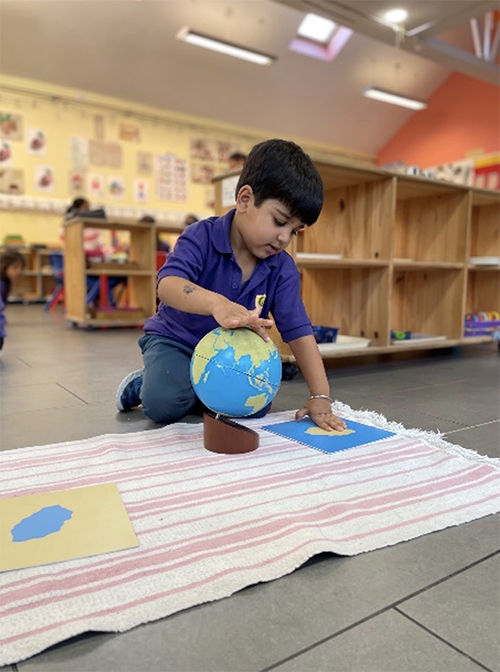
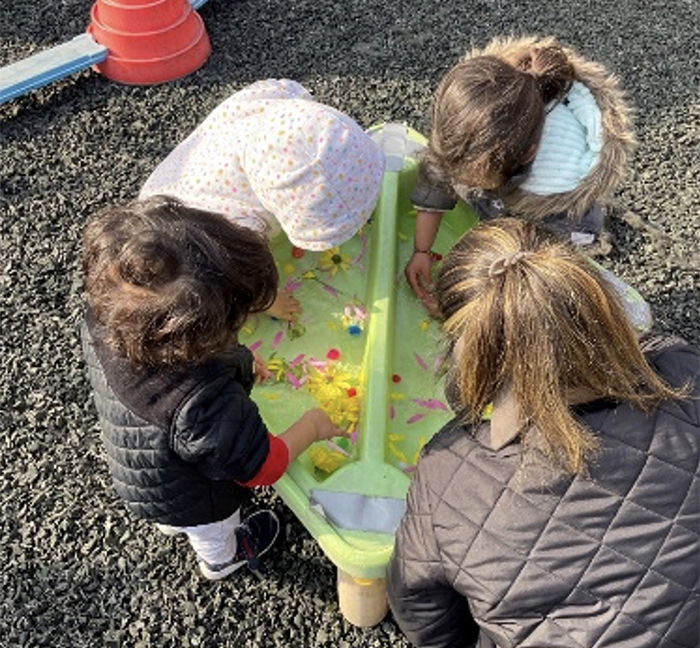
Dance, music, drawing, painting are all incorporated into the children’s daily routine. Children experience these activities with materials from all over the world and many different cultures.
Our carefully prepared environment responds to the needs of children at different stages and provides maximum opportunity for their development. Children are encouraged to be aware and considerate of the needs of others and to explore the environment and make their own discoveries. The environment is made attractive to encourage the children to explore a wide range of carefully prepared and tested materials. The children are allowed to move freely and enjoy their findings.

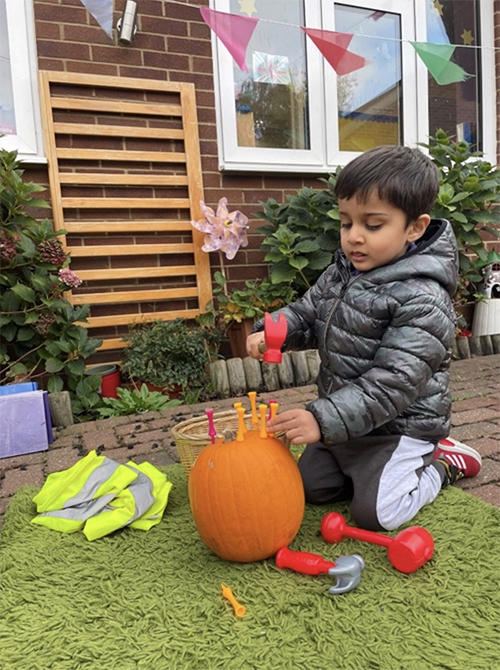
We have a secure and enclosed outdoor play area which ensures children have their own age-appropriate space. Outdoor play forms a large part in the development of our children. Our play area contains a multitude of age-appropriate physical activities, including slides and balancing beams, a mud kitchen, sand and water areas, music station, mark making walls, upcycled small world structures etc. The outdoors gives children first-hand contact with weather, seasons, and the natural world. It offers children freedom to explore, use their senses and be physically active and exuberant. A rich and varied environment supports children’s learning and development, whereby, giving them the confidence to explore and learn in a secure and safe yet challenging outside setting. A carefully prepared outdoor area is an extension of the indoor classroom.
We hope this has given you a small insight into our Montessori Methods!
Your Name I Child DOB I When are you looking to start? I Comments (optional) I Phone Number I Email
